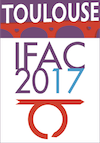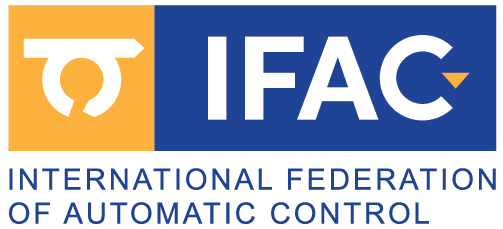Latest 4 submitted open invited tracks:
Simple Adaptive Control
Embedded Predictive Control and Optimization
Hybrid Control Synthesis for Multi-Robot Systems
Control and coordination for synchromodal transport systems
Details follow.
Title: Simple Adaptive Control
Track proposed by:I. Barkana, A. L. Fradkov, I. Mizumoto
Abstract: Since the 1970s, control engineers seek for solutions avoiding the need for large dynamical order and complex computations and, therefore, better suitable for application in real world systems. Designers often call their findings 'Simple Adaptive Control'. According to Web of Science more than 150 papers in peer reviewed journals have words Simple Adaptive Control in the title currently. The proposed OIT invites prospective authors to present both their contributions to the theoretical problems related to stability and performance and the detailed presentation of their particular applications dealing with adaptive controllers of low dynamical order with small number of tuned parameters.
Code for submitting contributions: 5317s
Title: Embedded Predictive Control and Optimization
Track proposed by: Sorin Olaru, Tor Arne Johansen, Eric C. Kerrigan
Abstract: Embedded predictive control and optimization cover the design methodologies and technologies for solving optimal control or estimation problems by considering the limited resources imposed by real-time constraints or by the dedicated hardware of a specific industrial application.
There are multiple aspects driving the research on this topic and which have witnessed significant advances: control problem formulations that lead to efficient embedded optimization algorithms; developments on the numerical methods; computer aided embedded optimization tools; embedded optimization software and hardware implementation technologies.
This open invited track session will welcome contributions on these topics and offer a forum for discussions between the participants from industry and academia.
Code for submitting contributions: 2cyk7
Title: Hybrid Control Synthesis for Multi-Robot Systems
Track proposed by:Dimos V. Dimarogonas, Jana Tumova
Abstract: Recent developments in hybrid control synthesis for single-robot systems have enabled the consideration of rich objectives and at the same time provable guarantees on their satisfaction, both in static and dynamic environments. The adoption of this framework in multi-robot systems is, however, not straightforward. While centralized approaches are computationally infeasible, distributed approaches are challenging due to dependencies between the agents and collaborative nature of the desired tasks. This invited track aims to present recent advances on the fusion of cooperative control and discrete task planning in multi-robot systems leading towards an efficient, distributed, adaptive control synthesis framework for multi-agent systems with rich objectives.
Code for submitting contributions: v9hy7
Title: Control and coordination for synchromodal transport systems
Track proposed by: R. Negenborn, S. Sacone, S. Siri
Abstract: Synchromodal freight transport is a recent idea, corresponding to an advanced concept of intermodal freight transport, relying on mode-free booking services, on-line planning and real-time exible selection of the transport modalities on the basis of the current logistics information. The efficient management of this type of transport requires very complex and sophisticated optimization and control methods. This Open Track for the IFAC 2017 World Congress will provide an opportunity for researchers to discuss and compare innovative control approaches for integrated synchromodal freight transport, as well as for (distributed) control for seaport hubs, container terminal, and intermodal terminals; (distributed) control for road vehicles and road networks; (distributed) control for vessels, locks, and water networks; and (distributed) control for rail systems, trains and rail networks.
Code for submitting contributions: t8phq






























